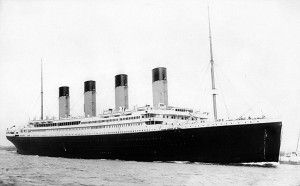May 6, 2012
Only Human Beings Can Convince one Another about Facts
Posted by Otto E. Rössler in categories: existential risks, particle physics
Why do I expect to be taken seriously by being given the benefit of the doubt? It is because I care. Only human beings know about truth because only humans can trust each other about facts. It is because of the invention-out-of-nothing, made at a very young age, of the suspicion of benevolence being extended towards them. This invention turns them into a person because only a person can understand benevolence.
So the refusal by CERN to offer a counterproof to the presented proof that they are playing with fire (a big fire) violates my rights as a person. The benefit of the doubt is a human right to solicit – especially so in science which rests on nothing else.
My friend Tom Kerwick has a result whose proof contains a loophole if I am not mistaken, but it takes time to come to the point with him. He therefore believes the danger were not there and innocently censors my best blogs. Maybe he will talk to me after this one.
But the real question is: What is benevolence? How come a planet can become dependent on the essence of benevolence being understood? Is it not well understood by the human society? Amazingly, this is not the case.
Continue reading “Only Human Beings Can Convince one Another about Facts” »










